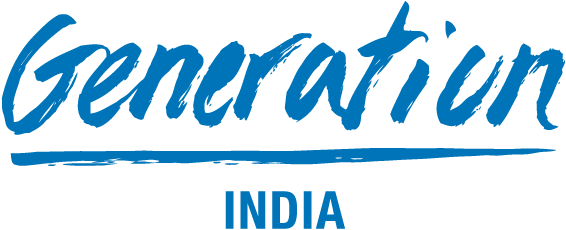Our impact
We reverse pervasive unemployment for our graduates and help them achieve economic mobility for themselves and their families.
We define impact as as advancing on three dimensions simultaneously
Breadth
The total number of graduates from our programmes, both annually and cumulatively
graduates since launching in 2015
Depth
Our employment and income outcomes within 3 and 6 months of programme completion
of graduates placed in jobs within three months of programme completion (83% at six months)
Durability
Sustained employment, income, and well-being outcomes over time
of Alumni can meet their daily financial needs 2-5 years after programme completion
Who We Serve
Female
responsible for dependants
have less than graduation level of education
were unemployed before joining Generation
We believe that great employees are identified through their skills
Our learners have a range of profiles by age, education, ethnicity, gender and income.
Education level
High school or less
University degree or masters
Unknown/other
TVET
Generation reverses pervasive unemployment
72% of our Alumni globally are in a role that is related to their Generation training, which positively impacts career growth and financial health.
Our graduates find employment quickly…
of our learners were employed pre-Generation
of our graduates are working within 6 months of graduation (75% at three months)
…and stay employed for years
Our graduates are earning salaries they use to make ends meet and for education, housing, healthcare, and more
of employed alumni’s monthly income is above the living wages
will be able to cover their own financial emergency right now (any expense or loss of income not planned for, like a missed payback, medical bill etc.)
“At Generation, we are committed to empowering individuals through our unique short-term training model complemented by extensive support. Our goal is not just to impart skills but to create pathways to life-changing opportunities that might otherwise remain out of reach.”

Independent Third Party Impact Assessments
As we grow, independent third party evaluations help assess our program impact for learners, graduates, and employers, so that we can continue to improve and expand our programmes. We have begun conducting evaluations in several of our countries with the support of experienced research agencies and academics.
Learn moreOn-the-job performance keeps employers coming back
employers have hired our graduates
would definitely hire Generation graduates again
of employed graduates hired in the last 12 months were hired by repeat employers

View the results of our Alumni survey
Each year, we survey thousands of Generation graduates who are 2-5 years post-programme to understand how they are doing and what impact Generation continues to have on their lives.
2023 Alumni Survey Results
Return on Investment for Employers for Generation India recruits
Generation India partnered with Grant Thornton Bharat to conduct an independent Return on Investment (ROI) study that evaluated the tangible benefits employers gain when hiring our graduates.
ROI Study
We keep data at the core of everything we do
Our data set is unique in the global workforce space — not only does it span the learner journey from application to training to up to six years post-Generation, but it covers but it covers 11 professions and includes both human observation and digital trace data.
Pre-programme
- Socio-Demographics
- Education and employment history
- Financial well-being
In-class
- Attendance and engagement
- Competence and performance
- Program feedback
- Risk assessment
On-the-job and Alumni survey
- Employment
- Income and savings
- Personal well-being
- Career growth
